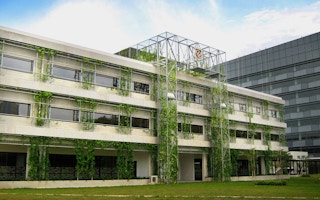In a clear sign that more companies are embracing the practice of integrated reporting, City Developments Limited (CDL) has become the first property developer in Singapore to adopt this approach for its latest 2015 sustainability report.
Using the International Integrated Reporting Council’s (IIRC) Framework, this type of reporting provides for “more all-rounded corporate reporting”, and is centred on six types of ‘capital’: Financial, Manufactured, Organisational, Social and Relationship, Human, and Natural, the company said in a statement on Wednesday.
It replaces the typical annual report that focuses mainly on the financial and stock performance of a company and is a two-in-one report that combines financial and sustainability reporting.
So far, in Singapore, only DBS Group has adopted integrated reporting. It did so for its 2013 annual report after it joined the IIRC’s 2011 pilot programme - under which it asked 90 global companies including Unilever, Microsoft, Hyundai to contribute to the development of its reporting framework.
Other listed companies such as CapitaLand and Singapore Airlines still issue two reports - one each for financial and sustainability reporting.
CDL said integrated reporting presents a more holistic picture to its investors and stakeholders on the interrelation between the company’s business and sustainability performance, and how this creates value over the short to long-term.
“Globally, calls for greater actions and transparency from corporations have intensified and green consumerism is on the rise,” noted Kwek Leng Joo, deputy chairman of CDL in the statement.
“With the Singapore Exchange having announced its plan to adopt the ‘comply or explain’ approach, making sustainability reporting not just a ‘good-to-have’, but a ‘must-have’ for listed firms soon,” he said.
The Singapore Exchange (SGX), which operates the local securities and derivatives bourse, started in early May a consultation process that will eventually see its more than 800 listed companies implement sustainability reporting on a “comply or explain’ basis – a move aimed at increasing public companies’ transparency in reporting on sustainability issues.
Titled “Creating Value for the Future”, CDL’s report complements the Global Reporting Initiative’s (GRI’s) G4 guidelines – the latest generation of its guidelines – and focuses on financial, social and environmental issues that have been identified as crucial to CDL’s business and stakeholders.
“
Globally, calls for greater actions and transparency from corporations have intensified and green consumerism is on the rise.
Kwek Leng Joo, deputy chairman, CDL
These issues were determined through an assessment conducted last year with internal and external stakeholders such as employees, customers, business associates, builders and suppliers, and government agencies, CDL said.
GRI is the internationally accepted reporting framework most widely-used by corporations to measure and disclose their sustainability performance.
In this year’s sustainability report, CDL has also included for the first time carbon disclosure from key subsidiaries, namely Millennium & Copthorne Hotels, CDL Hospitality Trusts, CBM, City Serviced Offices, Le Grove Serviced Apartments and the Tower Club in Singapore.
Last year, CDL achieved improved environmental performance in several areas, including a 21 per cent reduction in carbon emissions, a 29 per cent reduction in water usage and a 9 per cent increase in renewable energy generated by CDL-managed buildings.
The company reduced its carbon emissions by 21 per cent in 2014 - an increase from 18 per cent over the previous year – and is on track to achieve its target of 25 per cent reduction by 2030.
It also cut its water usage by 29 per cent from 717,033 cubic meters to 508,820 cubic meters. Water conserved at CDL’s construction sites in 2014 more than doubled from the year before.
CDL-managed buildings also generated 9 per cent more renewable energy in 2014 than in 2013 – from 199,732 kilowatt hours to 217,567 kWh, equivalent to the annual electricity used by about 39 Singapore households.
Over the last six years, the total savings in electricity bills totaled about S$36.5 million at its 57 BCA Green Mark awarded buildings, CDL added.
Singapore’s Building and Construction Authority (BCA) Green Mark scheme rates buildings for their sustainability performance.
As at the end of last year, the developer achieved just over 70 BCA Green Mark ratings for its properties, including 33 Platinum projects - the highest Green Mark award.
Kwek added that despite challenges in the global and domestic economies, CDL remained resilient with strong earnings of S$770 million for 2014, while maintaining its commitment to corporate social responsibility and sustainable development.
The year 2015 will be important for sustainable development and climate change, as world leaders will meet in September to approve the Sustainable Development Goals to guide national and global policies to 2030, Kwek said.
In December, leaders will also gather in Paris to adopt a global agreement on the preventing the growing dangers of human-induced climate change.
“2015 is expected to be another challenging year for the Singapore property market, and the outlook of the global economy remains fragile. Nevertheless, we believe that there will be pockets of opportunity,” Kwek said.

















